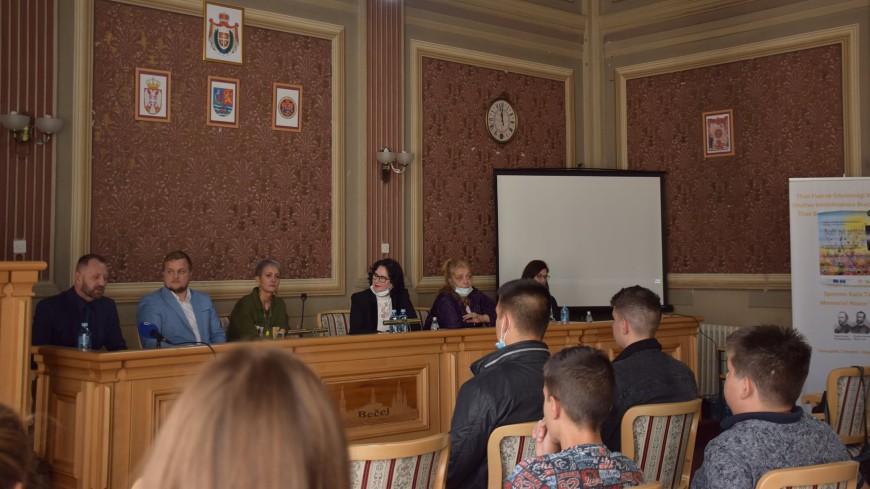At the beginning of October Than Brothers Circle of Intellectuals organised a final conference in the premises of Becej municipality in order to present results of their six months project "Be my friend". Key aim of the project was to examine presence of discrimination in primary schools in this municipality and to offer solutions for diminishing discrimination at the lowest level possible following results of their analysis. This initiative received financial support within the joint action of the European Union and Council of Europe "Promotion of diversity and equality in Serbia".
"I felt safe, respected, listened to. I learned a lot, but what I would point out is the way we see other people and how we already, and maybe unknowingly, judge them in a certain way.“
This is the way one of students described her impressions about workshops on discrimination she participated in. Workshops were organised in all four primary schools from Becej and approximately 140 students aged 13 to 15 attended. Four psychologists carefully designed their concept in close consultations with schools, covering topics such as children's rights, prejudices and stereotypes which lead to discrimination, constructive conflict resolution as well as acceptance of diversity and interculturality. Results showed that students were familiar with the concept of discrimination before the workshops, but that workshops enabled them to define this term more precisely.
The most evident discrepancy in answers before and after workshops was present when it comes to their reactions towards others. As an example, over 50 per cent of primary school students responded that they once used derogatory terms for others, offended or made distinctions between peers, while over 80 per cent of them said that they would not behave this way when the question was directed towards their future actions.
While before workshops they gave answers such as 'I do not know', 'nothing' etc. when asked on what they should do in case they recognise that someone has been neglected, students provided more precise and adequate answers such as 'I would try to prevent it' , 'I would tell a class teacher', 'I would contact teachers' etc. after workshops.
Another interesting data is that a pretty high number of students was not familiar with the existence of Teams against discrimination, violence, abuse and neglect in their schools, over 60 per cent of them. Although this percentage has almost halved after the workshops, the Association advices that it is necessary to work on informing all the actors about the work of these Teams.
Finally, over 60 per cent of students think that it is important that members of the majority are familiar with the customs and tradition of minority groups they live with. Not less important, over 80 per cent of students expressed their willingness to participate in these types of activities in the future.


